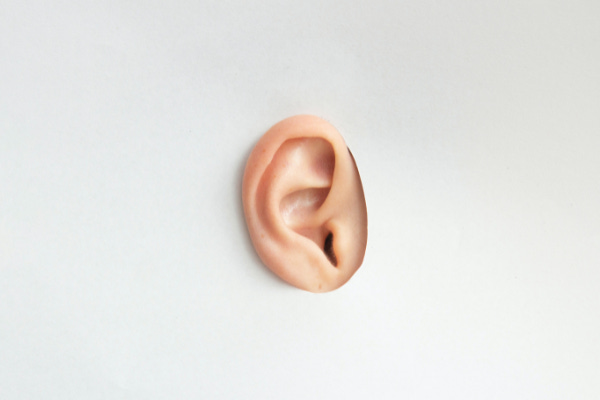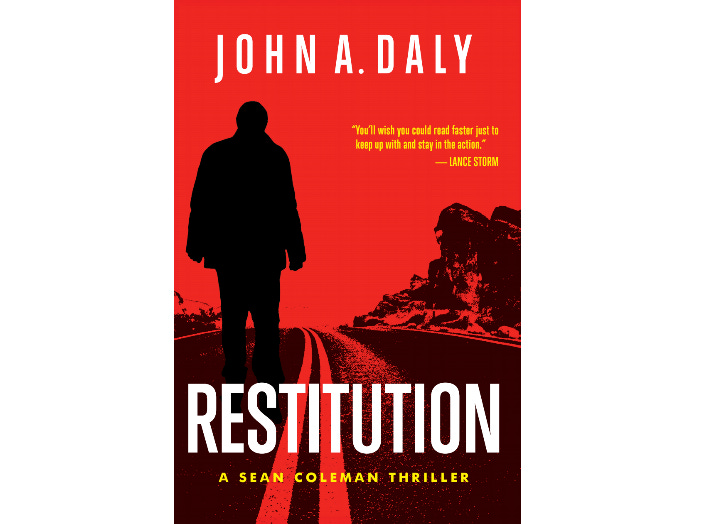Note: This post was automatically generated from John’s weekly newsletter, The Daly Grind. If you encounter broken links or images, you can go here to read from the original newsletter: Read More
We have a lot of discussions in my family on the topic of sound.
Both of my parents, like many people in their 80s, have difficulty hearing. While my father freely acknowledges it (and has for years), my mother has had a much harder time doing so. I think it’s partly because she doesn’t want to admit to having that particular trait of aging, but mostly because I don’t think she wants to spend money on hearing aids. I’m working on the latter issue now, but for the time being, the general plan seems to be for her to continue accusing me of mumbling when I talk, and drawing extra attention to my dad’s hearing loss, while the two of them keep their televisions cranked to 100.
My mother-in-law has trouble hearing as well, but she does wear hearing aids, and uses a separate listening device for watching television. Both help, but she often tends to interpret what people say to her (or to someone else in the room) in kind of a Mad Libs format, in that she’ll hear most of a sentence just fine, but a word within that sentence will be seamlessly recognized as a different, typically very out-of-place word. The “seamless” part of this issue is important when describing it, because she doesn’t find reason to ask the person speaking to repeat what they just said. She instead just accepts what she incorrectly heard, which leads her to take the conversation in a very confusing direction that ultimately requires some major (and sometimes comedic) unraveling… like with that “Telephone game” many of us used to play as children.
I too have some issues when it comes to hearing, but they’re of a different nature.
First, as is the case with many couples, my wife often accuses me of having “selective hearing”, and she’s not totally wrong. When people (usually family members) in the same room as I are having a conversation, and I’m using my laptop or smartphone, I often don’t hear (or I suppose register) what they’re saying… even when they’re talking about me. It’s definitely not a volume issue, because my wife speaks quite loudly (I sometimes get in trouble for saying that, but we both know it’s true), and even she has trouble breaking through my concentration.
By the way, I occasionally have a little fun with such scenarios.

If your wife complains that no one ever listens to her, and your reply is something other than “What was that?”, you’re not performing your proper comedic role as a husband.
Much stranger is my sensitivity to distant or discreet, non-verbal sound. Even with the television on, and just ten feet from where I’m sitting, I can hear things like a leaky faucet on the other end of the house, or a cat hissing or yowling in our yard or next-door. These are sounds my wife (who has fine hearing) still can’t detect even after I’ve muted the television. This “super power”, as I sometimes refer to it, used to drive my kids nuts when they were little, and would try to sneak upstairs to scare us; I could hear them coming a mile away.
I also have my Kryptonite when it comes to sound — specifically loud, enclosed, snapping sounds that catch my ear and send a wave of stress through my body. My wife (again, I may get in trouble for saying this) has a habit of loudly clapping when she’s excited about something, and it essentially has this effect on me:
Anyway, the point I’m getting at (which I realize isn’t apparent thus far) is that lots of people have hearing issues that affect their everyday life. And if they don’t now, they likely will down the road. It’s just part of living.
While there’s lots of technology available to assist with hearing issues, one very common piece of technology, that seems to have gone in the opposite direction, is the television set.
I’m referring to what has become the now regular practice, for many people, of having to adjust the volume on their remote control when the show or movie they’re watching switches back and forth between action scenes (which come across abnormally loud) and dialogue (which comes across abnormally soft). The discrepancy’s enough to make even those with perfect hearing question whether or not they have a physical disorder.
If you’re like me, you probably don’t remember experiencing this phenomenon nearly as often back before flat-screens, when we were all using those big, heavy tube sets.
One of the differences between then and now is that the speakers on old televisions were in the front, and speakers today — for design purposes — are typically on the back (which has led to the popularity of sound bars). But the primary explanation for what has happened, as I recently learned, actually has more to do with theatrical-based sound advancements.
A guy by the name of M. Nolan Gray explained the issue in layman’s terms the other day on Twitter:
Sound mixing in most TV shows and movies is really, really poorly optimized for home consumption, i.e. how it’s consumed 95% of the time. So often, you have to constantly turn up and down the volume and it really undermines the experience.
As a rule: your dialogue scenes should be 25% louder and your action scenes should be 25% quieter. If everyone involved in producing something only ever listens to it via (a) studio headsets or (b) movie theaters, you’re almost certainly producing a bad mix!
Film wonks should be especially ornery about this, since the way films are mixed today, consumers basically have to turn on subtitles or miss lots of dialogue. But reading subtitles seriously changes the aesthetic experience!
Imagine if you had to regularly adjust TV brightness/contrast while watching films to enjoy them, or keep audio description permanently on to avoid missing key elements. It would be recognized as a total production failure. And yet, with sound, all of this is taken for granted.
In other words, the problem isn’t with your television, but rather the sound crews working on these shows and movies. They’re considering what they are hearing through advanced equipment, and not so much what regular folks, with standard televisions, are hearing in their living rooms.
This is irritating enough to those of us who have little or no hearing loss (it drives my wife in particular nuts). For people like my parents and my mother-in-law, who struggle with the normal stuff (and watch a lot of television), it makes matters much worse — to the point where it’s nearly impossible to follow a story.
The good news is that newer televisions are being designed with different audio modes that let viewers, to some degree, adjust the volume of dialogue relative to that of action noise. But because it’s sort of a band-aid approach to the issue, it’s far from perfect, and the effectiveness of the settings vary between different programs.
That’s why it would be great if the problem were solved by production crews, before these shows or programs ever reached living room audiences. And with so many things being released directly to streaming and other on-demand services, maybe it will actually happen… some day.
I guess we’ll have to stay tuned (pun kind of intended) and see what happens.
Does this issue, or any other television pet peeves drive you bonkers? Let me know about it in an email or in the comment section below.
Award Announcement!
I’m excited to announce that “Restitution” has taken GOLD in the 2022 Literary Titan Book Awards.
I’m honored to be recognized by Literary Titan, and am thrilled to have won such a prestigious award among many talented authors.
Random Thought
Obligatory Dog Shot
Sun > Bone.
Obligatory Super-Cool Retro Image
“In 1965, New York Airways began helicopter service between JFK Airport and the Pan Am building in downtown New York City, using a 50‐foot long 30‐passenger Sikorsky S‐61. It was in operation for 2 years.” —DrPopCultureBGSU
Have you picked up your copy of RESTITUTION?
My new book “Restitution: A Sean Coleman Thriller” is out now! You can get it on Amazon, Apple, Barnes & Noble, Kobo, Books-A-Million, and wherever else books are sold.
Interested in a signed copy? You can order one (or five) here.
Already read and enjoyed it? I’d love if you could leave a review for the book on Amazon.
Featured Vinyl
A take some occasional teasing from friends about not liking “new” music, but truth be told, I do kind of dig a handful of bands that have risen to prominence over the last decade or so. Granted, they usually have a bit of a retro sound.
One of those bands is Greta Van Fleet out of a Michigan. There’s something about their fun, high-energy, guitar-driven sound that’s hard to listen to without the volume turned way up. “Highway Tune” is a perfect example, but their 2017 EP album, “From the Fires”, is full of great tunes.
That’s all for now. Thanks for reading today’s Daly Grind.
Want to drop me a line? You can email me at johndalybooks@hotmail.com, and also follow me on Facebook, Twitter, and Instagram. If you haven’t subscribed to this newsletter yet, please click on the “Subscribe now” button below. Doing so will get these posts emailed directly to you.
Also, if you’re not caught up on my Sean Coleman Thrillers, you can pick the entire series up at a great price on Amazon. And if you’re interested in signed, personalized copies of my books, you can order them directly from my website.
Take care. And I’ll talk to you soon!






